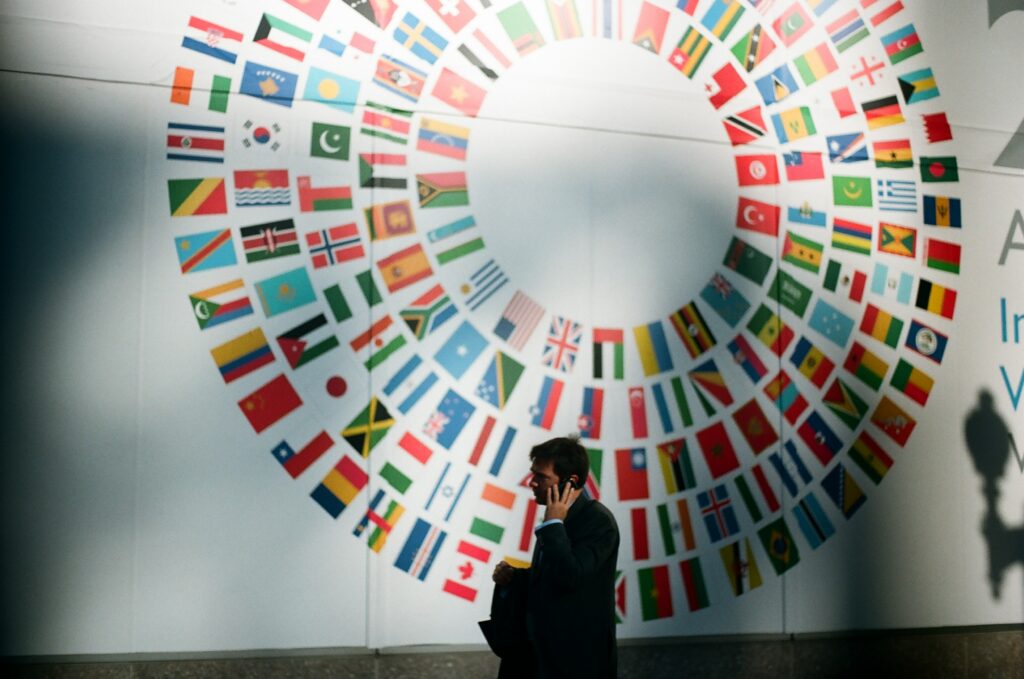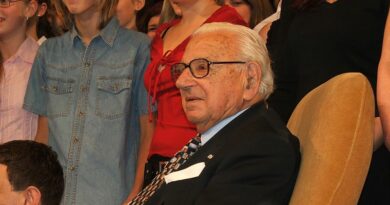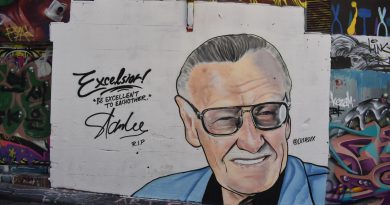Video | 15 Interesting Facts about Language
Photo by Markus Krisetya on Unsplash
Esta vídeo do canal Education World contém 15 fatos interessantes sobre idiomas. Se você está estudando um novo idioma, vai adorar esses fatos estranhos e interessantes sobre idiomas de todo o mundo. Por exempo, você sabia que existem cerca de 7.000 línguas no mundo, mas cerca de 500 delas são faladas por menos de 3.000 pessoas? No vídeo tem muito mais coisas interessantes sobre os idiomas do mundo todo.
| Audio | |
|---|---|
Normal | Slow |
| English Transcript | Tradução |
| If you are studying a new language, then you will love these odd and interesting facts about language. | Se você está estudando um novo idioma, vai adorar esses fatos estranhos e interessantes sobre idiomas. |
| Here are 15 fascinating language facts. | Aqui estão 15 fatos fascinantes sobre a linguagem. |
| Did you know there are around 7,000 languages in the world? | Você sabia que existem cerca de 7.000 idiomas no mundo? |
| Yet about 500 of those are spoken by fewer than 3000 people. | No entanto, cerca de 500 deles são falados por menos de 3.000 pessoas. |
| About half of the world speaks one of 10 languages as their native tongue. | Cerca de metade do mundo fala uma de 10 línguas como língua nativa. |
| The most widely spoken languages are Mandarin, Chinese, Spanish, Hindi, English, Portuguese, Bengali, Russian, Japanese, Punjabi, and Lahnda. | Os idiomas mais falados são mandarim, chinês, espanhol, hindi, inglês, português, bengali, russo, japonês, punjabi e lahnda. |
| The language that has the largest alphabet is Khmer with 74 letters. | O idioma que possui o maior alfabeto é o Khmer, com 74 letras. |
| Khmer is spoken mainly in Cambodia, Vietnam, Laos, Thailand, and China. | Khmer é falado principalmente no Camboja, Vietnã, Laos, Tailândia e China. |
| There are 840 languages used in Papua New Guinea, making it the country recognised as having the most languages. | Existem 840 idiomas usados em Papua-Nova Guiné, tornando-o o país reconhecido como tendo o maior número de idiomas. |
| Which language has the smallest alphabet? | Qual idioma tem o menor alfabeto? |
| The language with the fewest sounds is Central Rotokas which has only ten letters. | O idioma com menos sons é Central Rotokas, que tem apenas dez letras. |
| Central Rotokas is spoken by about four thousand people on the island of Bougainville, which is part of Papua New Guinea. | O idioma Central Rotokas é falado por cerca de quatro mil pessoas na ilha de Bougainville, que faz parte da Papua Nova Guiné. |
| The Constitution of India recognizes 23 official languages, but there are more than 720 languages spoken in India. | A Constituição da Índia reconhece 23 línguas oficiais, mas há mais de 720 línguas faladas na Índia. |
| Did you ever wonder how many alphabets there are? | Você já se perguntou quantos alfabetos existem? |
| There are about 46 different alphabets used in the world today. | Existem cerca de 46 alfabetos diferentes usados no mundo hoje. |
| The majority of the European languages use the Latin alphabet, with some Slavic languages using the Cyrillic alphabet. | A maioria das línguas europeias usa o alfabeto latino, com algumas línguas eslavas usando o alfabeto cirílico. |
| There are different alphabets for Greek, Armenian, Georgian, and Yiddish, plus some other languages. | Existem diferentes alfabetos para grego, armênio, georgiano e iídiche, além de alguns outros idiomas. |
| An alphabet is a system in which letters stand for sounds, but there are other writing systems used, such as syllabary in which the letters stand for syllables, Japanese is an example. | Um alfabeto é um sistema em que as letras representam sons, mas existem outros sistemas de escrita usados, como o silabário em que as letras representam sílabas, o japonês é um exemplo. |
| There's also a segmental writing system with consonant vowel combinations. | Também existe um sistema de escrita segmental com combinações de vogais consonantais. |
| Hindi is an example. | Hindi é um exemplo. |
| Finally there is logographic writing in which a character represents a word. | Finalmente, há a escrita logográfica em que um caractere representa uma palavra. |
| Some examples are Chinese, Japanese, Kanji and Egyptian hieroglyphs. | Alguns exemplos são hieróglifos chineses, japoneses, Kanji e egípcios. |
| We read and write English from left to right, but did you know, not all languages are written like this? | Lemos e escrevemos inglês da esquerda para a direita, mas você sabia que nem todos os idiomas são escritos assim? |
| For example, Hebrew and Arabic are written from right to left. | Por exemplo, hebraico e árabe são escritos da direita para a esquerda. |
| Chinese and Japanese are typically written from right to left today, but traditionally were written from top to bottom. | Hoje em dia, chinês e japonês são escritos da direita para a esquerda, mas tradicionalmente eram escritos de cima para baixo. |
| Did you know the Koishan languages of Southern Africa contain clicks as part of the language, denoted by an exclamation mark? | Você sabia que os idiomas Koishan da África do Sul contêm cliques como parte do idioma, indicados por um ponto de exclamação? |
| It is difficult for a non-native speaker to ever fully master these clicking sounds to integrate them seamlessly into the language. | É difícil para um falante não nativo dominar totalmente esses sons de clique para integrá-los perfeitamente ao idioma. |
| A palindrome is a word phrase, number or other sequence of characters which reads the same backward or forward. | Um palíndromo é uma frase verbal, número ou outra sequência de caracteres que tem a mesma leitura para trás ou para a frente. |
| Allowances may be made for adjustments, capital letters, punctuation and word dividers. | Podem ser feitas concessões para ajustes, letras maiúsculas, pontuação e divisores de palavras. |
| The language of a society changes slowly but steadily, with the result that an educated person will not be able to read or understand words in his language written 500 years ago. | A linguagem de uma sociedade muda lenta, mas continuamente, com o resultado de que uma pessoa educada não será capaz de ler ou compreender palavras escritas em sua língua há 500 anos. |
| It has been estimated that the number of actively spoken languages in the world today is about 6,000. | Estima-se que o número de línguas faladas ativamente no mundo hoje seja de cerca de 6.000. |
| Approximately one new word is added to the English language every two hours, and around four thousand new words are added to the English dictionary every year. | Aproximadamente uma nova palavra é adicionada ao idioma inglês a cada duas horas, e cerca de quatro mil novas palavras são adicionadas ao dicionário de inglês a cada ano. |
| English is the official language of the sky. | O inglês é a língua oficial dos céus. |
| It doesn't matter which country they are from, all pilots speak in English on international flights. | Não importa o país de origem, todos os pilotos falam inglês em voos internacionais. |
| If you want to learn a new language check out the rest of our channel, we have tons of lessons available for a variety of languages. | Se você quiser aprender um novo idioma, dê uma olhada no resto do nosso canal, temos toneladas de aulas disponíveis para uma variedade de idiomas. |
| If you enjoy our video you can help support us by clicking like, subscribing, and sharing. | Se você gostou do nosso vídeo, você pode nos apoiar clicando em curtir, inscrevendo-se e compartilhando. |
Contagem de palavras
A tabela abaixo exibe as palavras encontradas neste vídeo bem como o número de vezes em que aparecem.
Veja também: Para que serve esta tabela?
| Freq. | Palavra | Freq. | Palavra | Freq. | Palavra |
|---|---|---|---|---|---|
| 31 | the | 17 | are | 16 | of |
| 14 | languages | 14 | is | 13 | language |
| 11 | in | 11 | and | 11 | a |
| 10 | to | 9 | you | 8 | which |
| 8 | there | 7 | for | 6 | spoken |
| 6 | new | 6 | english | 6 | about |
| 5 | written | 5 | with | 5 | letters |
| 5 | from | 5 | but | 5 | an |
| 5 | alphabet | 4 | world | 4 | word |
| 4 | japanese | 4 | it | 4 | has |
| 4 | did | 4 | by | 4 | as |
| 3 | writing | 3 | used | 3 | today |
| 3 | that | 3 | sounds | 3 | some |
| 3 | right | 3 | other | 3 | or |
| 3 | left | 3 | know | 3 | if |
| 3 | example | 3 | chinese | 3 | alphabets |
| 2 | words | 2 | will | 2 | we |
| 2 | thousand | 2 | these | 2 | than |
| 2 | system | 2 | stand | 2 | rotokas |
| 2 | read | 2 | people | 2 | part |
| 2 | papua | 2 | our | 2 | one |
| 2 | on | 2 | official | 2 | number |
| 2 | not | 2 | native | 2 | most |
| 2 | like | 2 | khmer | 2 | india |
| 2 | hindi | 2 | guinea | 2 | four |
| 2 | facts | 2 | every | 2 | ever |
| 2 | different | 2 | country | 2 | clicking |
| 2 | central | 2 | be | 2 | around |
| 2 | all | 2 | added | 1 | yiddish |
| 1 | yet | 1 | years | 1 | year |
| 1 | write | 1 | wonder | 1 | widely |
| 1 | were | 1 | want | 1 | vowel |
| 1 | vietnam | 1 | video | 1 | variety |
| 1 | using | 1 | use | 1 | us |
| 1 | understand | 1 | typically | 1 | two |
| 1 | traditionally | 1 | top | 1 | tons |
| 1 | tongue | 1 | those | 1 | this |
| 1 | they | 1 | there's | 1 | then |
| 1 | them | 1 | their | 1 | thailand |
| 1 | ten | 1 | systems | 1 | syllables |
| 1 | syllabary | 1 | support | 1 | such |
| 1 | subscribing | 1 | studying | 1 | steadily |
| 1 | speaks | 1 | speaker | 1 | speak |
| 1 | spanish | 1 | southern | 1 | society |
| 1 | smallest | 1 | slowly | 1 | slavic |
| 1 | sky | 1 | sharing | 1 | sequence |
| 1 | segmental | 1 | seamlessly | 1 | same |
| 1 | russian | 1 | result | 1 | rest |
| 1 | represents | 1 | recognizes | 1 | recognised |
| 1 | reads | 1 | punjabi | 1 | punctuation |
| 1 | portuguese | 1 | plus | 1 | pilots |
| 1 | phrase | 1 | person | 1 | palindrome |
| 1 | out | 1 | only | 1 | odd |
| 1 | non | 1 | more | 1 | may |
| 1 | matter | 1 | master | 1 | mark |
| 1 | many | 1 | mandarin | 1 | making |
| 1 | majority | 1 | mainly | 1 | made |
| 1 | love | 1 | logographic | 1 | lessons |
| 1 | learn | 1 | latin | 1 | largest |
| 1 | laos | 1 | lahnda | 1 | koishan |
| 1 | kanji | 1 | island | 1 | into |
| 1 | international | 1 | interesting | 1 | integrate |
| 1 | how | 1 | hours | 1 | his |
| 1 | hieroglyphs | 1 | here | 1 | help |
| 1 | hebrew | 1 | having | 1 | have |
| 1 | half | 1 | greek | 1 | georgian |
| 1 | fully | 1 | forward | 1 | flights |
| 1 | finally | 1 | fewest | 1 | fewer |
| 1 | fascinating | 1 | exclamation | 1 | examples |
| 1 | european | 1 | estimated | 1 | enjoy |
| 1 | egyptian | 1 | educated | 1 | doesn't |
| 1 | dividers | 1 | difficult | 1 | dictionary |
| 1 | denoted | 1 | cyrillic | 1 | contain |
| 1 | constitution | 1 | consonant | 1 | combinations |
| 1 | clicks | 1 | china | 1 | check |
| 1 | characters | 1 | character | 1 | channel |
| 1 | changes | 1 | capital | 1 | can |
| 1 | cambodia | 1 | bougainville | 1 | bottom |
| 1 | bengali | 1 | been | 1 | backward |
| 1 | available | 1 | armenian | 1 | arabic |
| 1 | approximately | 1 | also | 1 | allowances |
| 1 | ago | 1 | africa | 1 | adjustments |
| 1 | actively | 1 | able |









